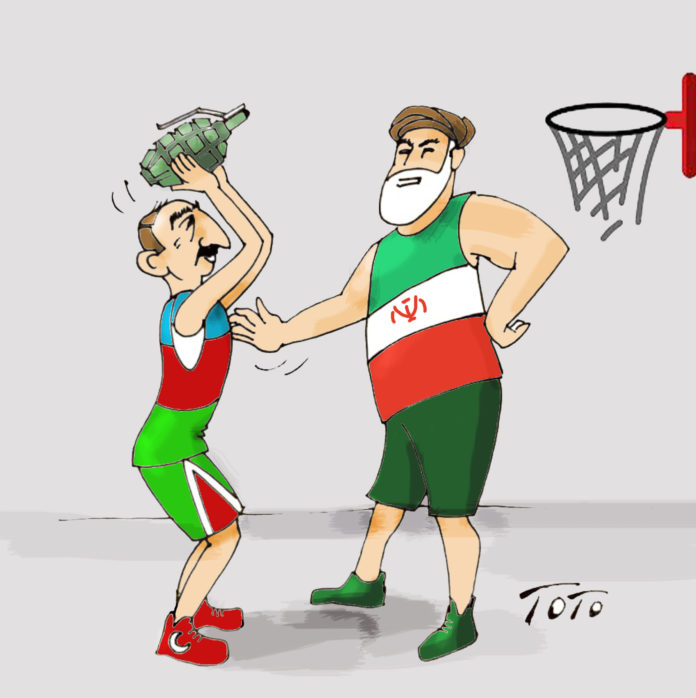The cross-border rhetoric flying back and forth between Iran and Azerbaijan thus far has created a false sense of hope for Armenia.
If until now this war of words was considered political drama in the South Caucasus, the further escalation of tensions between the two major parties makes it pale in comparison in terms of scale.
In the aftermath of the 44-Day War in 2020, political developments exposed regional rivalries which use Armenia and Azerbaijan to expand zones of influence or to fight to replace an antagonist. That, of course, gives leverage to the Azerbaijani dictator to play both sides against each other and take advantage from each side.
President Ilham Aliyev travels to any capital for summit meetings. He even agrees to respect the territorial integrity of Armenia and negotiate in good faith to sign a peace treaty, only to bomb Armenia’s borders the next day and to raise the issue of the “Zangezur Corridor” to return the situation back to square one.
The next summit between Armenian Premier Nikol Pashinyan and Aliyev had been planned to take place on December 7 in Brussels, with the participation of European Union President Charles Michel and French President Emmanuel Macron. However, Mr. Aliyev this week announced his refusal to participate, citing as the reason the presence of Mr. Macron, whom he considers to be pro-Armenian and thus not an independent broker. In addition, behind this resentment lies the recent overwhelmingly one-sided vote in the French Senate, which calls on Azerbaijan to stop its aggression against Armenia and redress all the consequences of that aggression.
Macron’s participation in that planned meeting was not necessarily a Pashinyan prerequisite but it was based on an agreement reached in Prague to continue the negotiations in the same format.








